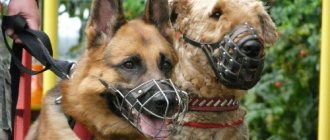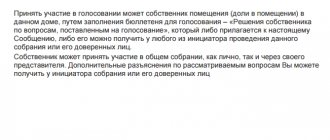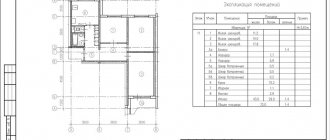In Russia, there are no high-quality legislative standards in the field of keeping and walking dogs that would be truly observed by dog owners. Of course, there are regional codes on administrative violations and local regulations in which a separate chapter is devoted to administrative offenses in the field of treatment of animals.
However, most dog breeders perceive the law as recommendations that do not have to be followed. As a result, pet owners are irresponsible when walking their pets, not following basic safety rules, which, it would seem, do not need legislative support, without thinking that a dog that is kind to its owner can show aggression towards other people and animals.
Legislative standards in the field of treatment of animals
The “Rules for keeping dogs and cats in cities and other populated areas of the RSFSR” (approved by the Ministry of Housing and Communal Services of the RSFSR, the Ministry of Agriculture of the RSFSR, the Ministry of Health of the RSFSR, the Ministry of Justice of the RSFSR and Rospotrebsoyuz - June-July 1981) have not ceased to apply.
Responsibility is established by regional codes on administrative offenses, which for the most part have the same content. Thus, there is Moscow Law No. 45 of November 21, 2007, “Moscow City Code on Administrative Offenses,” which determines the amount of penalties for non-compliance with the rules for keeping and walking dogs.
The City Duma was considering draft laws “On the Responsible Treatment of Animals” and “On the Breeding and Keeping of Dogs of Aggressive Breeds in the Russian Federation,” but the text of the laws turned out to be so unfinished that the projects caused a wave of indignation among dog breeders and the further fate of the projects is unknown. The draft law “On keeping dogs in the Russian Federation” was also submitted for consideration and remained without movement.
New dog walking laws
The new animal law, which came into force in 2020, has come a long way before being adopted. It was under consideration in the State Duma for more than 7 years; disputes and ambiguous assessments constantly arose among deputies; the text was subjected to repeated adjustments. As a result, the new act was signed and came into force at the very end of 2020.
The main requirement for dog owners is to prevent the threat of attacks on people and animals and not to cause damage to the property of individuals or legal entities.
New concepts and requirements have been added to the law on dog walking in Russia in 2020:
- the collar should contain the owner's contact information;
- The Federal Law gives the legislative right to subjects themselves to determine the list of places prohibited for walking;
- Dogs of potentially dangerous breeds are walked on a short leash and wearing a muzzle (previously, wearing a muzzle was not mandatory). A pet of this breed is allowed to be without a muzzle only in a fenced area belonging to the owner.
In the original version of the project there was a list of potentially dangerous dog breeds, which was excluded after the first reading. A definition was added to the final text of the law (Article 3, paragraph 10): potentially dangerous dog breeds are breeds that pose a potential threat to human life and health. Separately, the Government of the Russian Federation must prepare a list of dangerous breeds; this is currently being done by the Ministry of Internal Affairs. Initially, the list included 69 breeds, but after sharp criticism of the project, their number was reduced to 13. The list being developed is now being actively discussed, including by professional dog handlers, but has not yet been adopted.
Amounts of penalties
In accordance with Moscow Law of November 21, 2007 N 45 “Moscow City Code on Administrative Offences”, administrative fines are provided, but, unfortunately, persons authorized to draw up protocols for violations of keeping and walking pets rarely exercise the right to bring administrative liability of citizens who do not comply with the law.
| Act | Fine |
| Pollution by pets of public places in apartment buildings and public places. | from 1000 to 2000 rubles for citizens from 2000 to 3000 rubles for officials |
| Appearing with a dog without a leash and muzzle on playgrounds, beaches, markets, shops, institutions, transport, walking in the territories of healthcare institutions, kindergartens, schools, other educational institutions and institutions working with minors. | from 1000 to 2000 rubles |
| Appearing with a dog without a leash in natural and green areas, specially protected natural areas, if the act does not contain signs of an administrative offense under Art. 4.2 of this law. Violation of the regimes for the protection and use of specially protected natural areas of regional importance in the city of Moscow, as well as their protective zones. | from 1000 to 2000 rubles for citizens from 2000 to 3000 rubles for officials |
| An attack by a domestic dog on another domestic animal, resulting in injury or death of the latter (similarly in relation to wild animals). | from 4000 to 5000 rubles |
| Allowing a negligent attack by a domestic dog on a person causing harm to human health, if the act does not contain signs of a crime under Art. 118 of the Criminal Code of the Russian Federation*. | from 4000 to 5000 rubles for citizens from 4,000 to 10,000 rubles for officials from 10,000 to 60,000 rubles for legal entities |
| Setting a domestic dog on people or animals. | from 2000 to 5000 rubles for citizens from 5000 to 10000 for officials |
| Causing damage to someone else's property through the physical impact of a pet. | from 500 to 1000 rubles for citizens from 2000 to 3000 rubles for officials from 6,000 to 10,000 rubles for legal entities |
| Violation of the procedure for transporting pets on city public transport, as well as the procedure for their transportation. | from 500 to 1000 rubles for citizens from 2000 to 4000 rubles for officials from 4000 to 6000 rubles for legal entities |
*Article 118 of the Criminal Code of the Russian Federation
1. Causing serious harm to health through negligence is punishable by a fine in the amount of up to 80,000 rubles or in the amount of the wages or other income of the convicted person for a period of up to 6 months, or by compulsory labor for a period of up to 480 hours, or by correctional labor for a period of up to 2 years, or restriction of freedom for a term of up to 3 years, or arrest for a term of up to 6 months.
2. The same act, committed as a result of improper performance by a person of his professional duties, is punishable by restriction of freedom for up to 4 years, or forced labor for up to 1 year with deprivation of the right to occupy certain positions or engage in certain activities for up to 3 years. x years or without it, or imprisonment for a term of up to 1 year with deprivation of the right to hold certain positions or engage in certain activities for a term of up to 3 years or without it.
If the dog bites, disturbs the peace with continuous and loud barking, the owner walks the dog without a muzzle or leash, in the wrong place, then you should contact the police or the local police officer and write a statement about the violation. Moreover, it is important to indicate your personal data, otherwise the anonymous application will not be considered.
Similar articles:
- Certificate of origin of a hunting dog
- Dog breeding agreement
- The act of mating dogs
- Purchase and sale agreement for a puppy
- Reserving a puppy
- Veterinary certificate form No. 1
Where to walk your dog in public places: rules, laws and people’s opinions
Almost every home has a pet, which has long become a real member of the family. A special place among animal lovers is occupied by “dog lovers” - owners of intelligent and friendly creatures. And only cats walk on their own, while dogs need to be walked 2-3 times a day.
Those for whom a dog is not just a given, but a companion and friend, know and fulfill all the necessary requirements for keeping, caring for and walking their pet. But, there are people who do not know the specifics of keeping a dog. Therefore, TR will consider, first of all, the legislative framework, as well as unregulated rules tacitly accepted among responsible dog breeders.
Dog walking law passed
Until 2020, there was simply no regulated document on dog walking standards in Russia. This year, parliamentarians finally approved amendments regarding the rules for walking pets. Now, the dog owner is obliged to ensure a safe stay on the street not only for his pet, but also for people in the place of walking, as well as other animals. The dog owner is also responsible for damage to property.
Previously, the bill made it mandatory to use a muzzle in crowded places. Today, when crossing rest areas, roads, etc. Only a leash is allowed. However, dogs whose breeds are considered potentially dangerous must still be muzzled. It is advisable to use a shortened leash, which can be easily tightened if necessary, in order to avoid causing harm to passers-by. On the collar you need to attach a tag with the specified information about the owner and his phone number.
By law, the owner of the dog is obliged to clean up its waste; to do this, he must carry a dustpan and a bag with him. This is by law, but in fact, nowhere in the city have I seen a single owner cleaning up after their pet. There are a small number of specialized dog boxes located in the capital and other large cities, but will they ever reach Tambov?
Where can you walk your pet without breaking the law?
There is no final answer yet about places for walking animals permitted by local governments. However, there are certain territorial requirements for walking with a pet:
- The total area of the territory must be more than 400 sq.m,
- It is prohibited to walk your pet closer than 40 meters from children's institutions (schools, kindergartens, hospitals, playgrounds),
- The walking area should be located at least 25 meters from residential buildings and office buildings.
- The covering in the walking area should be changed at least once a year.
In fact, in Tambov it is extremely problematic to obey such rules. It is in large cities that specialized areas for walking animals appear, marked with a special icon. In the regional center, as a rule, dog walking is limited to the local area, in close proximity to adults and children.
The majority of people I interviewed have an extremely negative attitude towards dog owners who walk their pets on playgrounds or in the immediate vicinity of them:
“I have an extremely negative attitude towards people walking their dogs near children,” says Arina Martynova . “I consider such people to be ill-mannered egoists.” Firstly, dogs relieve themselves right where children play, and secondly, there are many recorded cases of dogs attacking people. At such moments I become simply scared for my child! Sometimes you see a huge dog being led on a leash, and the owner can barely control the pet, the dog will run and the person simply won’t be able to hold it!”
“There is no place for dogs or people with negative behavior on playgrounds,” says Alena Strashnova. “The playground is for children, not for walking dogs and drinking alcohol!”
“Having a dog on a playground with children is unsafe,” Olga Chertykovtseva answers. – After all, the behavior of both children and animals is unpredictable. Besides, dogs shit, but very few people clean up after them.”
“In essence, I am not against dogs or children,” shares Sergei Toporkov . “Everyone should just have their own place.” And if I am not against children (not my own) walking in dog walking areas, then I am definitely against dogs walking in children’s walking areas.”
This attitude towards the proximity of children and dogs and the same playground is understandable. Every parent is concerned about the safety and health of their child and has every right to demand compliance with all established standards.
Among “dog owners,” internal ethical laws have long been established that exclude walking dogs on sites and near crowds of people.
Criminal liability for a pet
Every dog owner must remember that any violation of walking a pet is punishable by a fine. In some cases, the owner bears criminal liability for the activities of his pet.
Federal Law 498 established that dogs of some breeds are potentially dangerous to humans. If a dog attacks a person, its owner will be brought to justice. Also, criminal liability is provided for when a dog inflicts grievous bodily harm, and the owner’s actions are intentionally aimed at causing such harm, or if death occurs due to the negligence of the animal owner.
The list of potentially dangerous dog breeds includes 12 dog breeds that have “genetically determined qualities of aggression and strength”:
- Akbash
- Ambuldog
- American Bandog
- Brazilian Bulldog
- Alapaha purebred bulldog (otto)
- Bully Kutta
- Bandog
- Gul-dog
- Pitbullmastiff
- North Caucasian dogs
- Wolf-dog hybrids and wolf-dogs
- Mixed breeds of the above breeds
Regulations on walking potentially dangerous dogs will only come into force from January 2020.
Dog on public transport
If you need to transport your dog on public transport, it is important to follow the established rules and requirements. First of all, the dog must be muzzled and fastened to a leash.
By law, your pet has the right to a separate seat; the main thing is not to forget to pay for the second ticket for travel. The owner must have a veterinary certificate and a certificate confirming the date of the last rabies vaccination.
It is recommended to transport small breed dogs in special carrier containers. Large breeds may occupy the rear seats.
You will have to pay for violations
In some regions there are established fines for walking dogs in the wrong place:
- Walking a dog while intoxicated – 5 thousand rubles,
- Visiting a store with a pet without a muzzle and a leash – 1-2 thousand rubles,
- Walking without a leash in a park, forested area, public garden - 1-2 thousand rubles,
- Relieving your pet in prohibited places – 1-2 thousand rubles,
- Walking on the territory of a child care facility, including on the playground where children stay – 1-2 thousand rubles.
- Keeping a dog in hostels and communal apartments without the consent of neighbors – up to 2 thousand rubles,
- Setting a dog on a person – up to 5 thousand rubles,
- Transporting a dog without a leash and muzzle in public transport – 500-1000 rubles,
- Organization of animal fights – 2.5 thousand rubles.
In cases of repeated violation, the animal owner will pay a fine several times higher than the initial amount. Owners are also fined if an attack on another dog is recorded, damage to green spaces and violation of city improvement rules.
Who should I complain about a violation to?
In case of violation of dog walking, it is advisable to record this action in a photo or video. This will significantly simplify the fact of proving an offense. Then a collective complaint should be filed. In this case, the more people sign the complaint, the greater the chances of a fair punishment.
The complaint is submitted directly to the district police officer or to the local government authority - the administration. Authorities are obliged to consider your appeal as soon as possible and fine the offender. If officials do not act, then you can send a complaint to the prosecutor's office.
Share on social media Facebook networks
VK
Rules for walking dogs in the city: the Russian law is silent
There are some requirements that are not specified in the law, but they are strongly recommended to be followed:
- It is prohibited to be with a dog in schools, hospitals, kindergartens, sports grounds, and catering establishments.
- In transport, dogs must be next to their owner. And you need to keep your pet on a short leash, no more than 1 meter in length. In other places with small crowds of people, you can do this on a loose leash.
- When crossing streets, highways and highways, the owner must keep the dog close to him on a short leash.
- The owner of a four-legged friend must prevent him from chasing cars and people, and prevent him from throwing garbage out of bins and garbage dumps. It is advisable to prohibit free walking of the bitch during the next heat.
In which places is dog walking strictly prohibited?
You should know the list of places where, according to the law, you do not have the right to appear with your pet. The rules for walking pets were fixed in 2001 at the beginning of May.
Walking dogs is prohibited:
- On specialized playgrounds for children.
- On the territory of educational institutions (schools, universities, kindergartens and others).
- On the territory of hospitals and clinics.
- In places where there are large crowds of people (except for urban parks).
- Sports and cultural institutions.
As you can see, there are not very many such places and you can adhere to the rules established by law.
Who is responsible for monitoring whether the rules are being followed?
The new law also includes a list of those who have the right to monitor compliance with the rules by dog and cat lovers.
- State Inspector
Inspectors of supervisory authorities created in the constituent entities of the Russian Federation are authorized to consider appeals and issue instructions to violators. If a citizen does not listen, he will be given an administrative fine of up to 500 rubles. But if the order is issued by a veterinary inspector, the fine will be larger - up to 4 thousand rubles. from individuals.
State inspectors have the right to immediately prosecute a dog owner and even seize the offender’s pet.
- Public Inspector
Such inspectors are representatives of animal protection organizations or ordinary citizens who have a certificate. Such an employee can film an offense with a camera, record a video, and send files to government services, which have the power to bring the perpetrator to justice. At the moment, the status of civilian inspectors has not been approved, and their activities are not subject to official instructions.
In order to obtain the status of a public inspector, an activist must send an application to Rosprirodnadzor or to a body, committee, department, or service created on the basis of the subject. The main thing is that its title should include the words ecology, environmental protection, environmental management, and so on. The commission must accept the application and conduct an interview with the citizen to understand how interested he is, whether he is aware of the rules for keeping animals, and whether he is even suitable for the position of inspector.
If your neighbors are creating chaos, and you can no longer tolerate disrespect for you personally and for the residents of the yard as a whole, then you can contact any veterinary and environmental control body and become an inspector - monitor the situation and, if anything happens, submit an application to the district police officer in person or through portal of the Main Directorate of the Ministry of Internal Affairs. To substantiate, use materials captured in photographs, testimonies of neighbors, and video recordings. And yes, you have the right to film in public places.
Is it possible to walk a dog in the park?
Let us note that the current legislation of the Russian Federation does not contain rules that directly prohibit walking dogs in parks and squares. But the administrations of parks and squares have the right to independently establish such restrictions. To avoid fines, a citizen needs to follow the internal rules.
Attention! At the moment, the following dog walking requirements apply, which are mandatory throughout the Russian Federation:
- When walking, the dog must be on a short leash and muzzled. This restriction does not apply to puppies less than 3 months old;
- You can walk dogs only in specially designated areas. In closed walking areas, dogs are allowed without leashes and muzzles;
- You can walk around the clock. At the same time, dog owners must ensure silence at night;
- It is prohibited to have dogs in places where public events are held;
- citizens who are intoxicated are prohibited from walking dogs;
- Citizens under 14 years of age are prohibited from walking their dogs on their own.
Dogs, like other pets, need human attention and care. Note that if it is not prohibited to walk dogs in the park, then it is advisable for owners to remove excrement left by their pets. This will reduce the hostility of citizens towards dog owners.
Content
- Where can you walk your pet?
- In what places is dog walking strictly prohibited? Dog walking rules.
- In what cases is a leash necessary?
- What kind of leash should a dog have?
- Muzzle for an animal: when to put it on, standard requirements.
- Responsibility of the dog owner: fine for walking a dog in the wrong place, walking a dog without a muzzle.
- What is the dog owner criminally liable for?
- Where to go if you are bitten by someone else's dog?
How to clean up your flower beds?
If the owner takes care of pets, then what about wild dogs that also shit on the grass? Complaining will not help, because stray animals do not have owners who can take responsibility. To restore order on the lawn, you will need to contact an organization that is obliged to maintain the residential area in proper condition.
The management company or HOA - Homeowners' Association is responsible for the improvement and order of the local area. They are required to clean it and ensure sanitary and hygienic compliance with the norm. If the management company is shirking, contact the administration with a collective complaint, attaching a photo.
Improvement and order of the local area
Cleanliness in the yard is the result of intensive social work. Talk to your neighbors, especially dog owners, and explain the problem peacefully. There is no need to threaten the lady with the Spitz from the next door with a fine or threaten that you will take the terrier away from the guy on the floor above. Offer to create an information stand that will spell out the rules and responsibility for violations. Based on the residents’ reaction, it will become clear with whom you can rush into the breach and shower government agencies with complaints, and who, just as they did not clean up their pet’s feces, will not do so.
Don’t be shy - record violations on your smartphone, defend your position, knock on the doors of government inspectors. Sometimes a conversation is enough: there are people who don’t even suspect that they cause inconvenience to others by walking. There is a chance to punish those insolent people who do not take anyone into account and continue to pollute the place where they live. Operate with the law, refer to unsanitary conditions, attach evidence, find reliable witnesses and activists who will support you.









